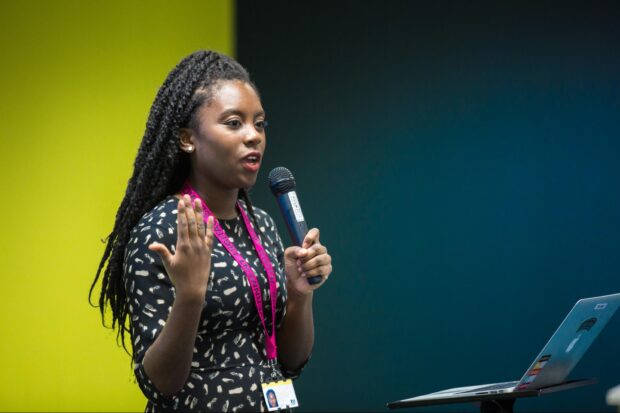
Across government, departments are building data capability by recruiting analysts and data scientists to support decision making, operational delivery and help deliver Government transformation. The Government Data Science Partnership has supported this activity by developing training, capability programmes and an active data science community of interest.
As well as increasing the number of data specialists in government, it’s also important that other communities understand the opportunity that better use of data presents.
Piloting training
At GDS, we’ve developed a data literacy programme to encourage better conversations between data specialists and decision makers. We want to give people the skills to engage, commission and ask the right questions of data scientists and analysts.
Civil servants across professions need to have the skills to understand why data is important, how it’s being used across government and how they can make better use of data in their teams.
Over the past quarter we’ve worked with Civil Service Learning, the Civil Service Leadership Academy and directly with government departments to deliver training that supports senior civil service leaders and policy makers to be more informed and confident data customers.
Our goals for these sessions were to demystify data and highlight examples of where better use of data has informed policy making and saved money in government. We also wanted to give people practical tips for initiating data science projects to support their team’s objectives.
Alongside training, we’ve conducted user research to learn more about the relationship between data specialists and non-specialists. These findings are informing content for our data literacy training and help us to understand what other activities can help bring these communities closer together.
What we’ve learnt
There is lots of interest in technical applications of data science, such as machine learning and artificial intelligence. But this isn’t matched with a clear understanding of how or why these techniques might be used in problem solving. We’ve also seen how important it is to give people a good grounding in what data is, what the limitations of data analysis are and how guidance such as the Data Science Ethical Framework can ensure government uses data responsibly.
We’ve learnt about how important culture is to making better use of data in government. Data scientists often work in an iterative way and benefit from being embedded in a team to help solve problems collaboratively. It’s important that non-technical audiences understand the experimental way in which many data specialists work.
We’ve also often found that leaders and managers have different needs. Senior civil servants are often interested in how to build data science teams and a data informed culture while managers are often interested in getting projects started.
What’s next?
In 2018, we’re planning to scale the data literacy programme using the GDS Academy to make training available to more civil servants across government.
We’re also continuing to run sessions with Civil Service Learning on using data for better decision making. We’re interested in working with our partners to look at all the skills data practitioners need to help colleagues build data into decision-making as effectively as possible.
Sign up to the cross-government data science community of interest to learn more about our events, projects and training.
You can follow GDS on Twitter, and don’t forget to subscribe to this blog.